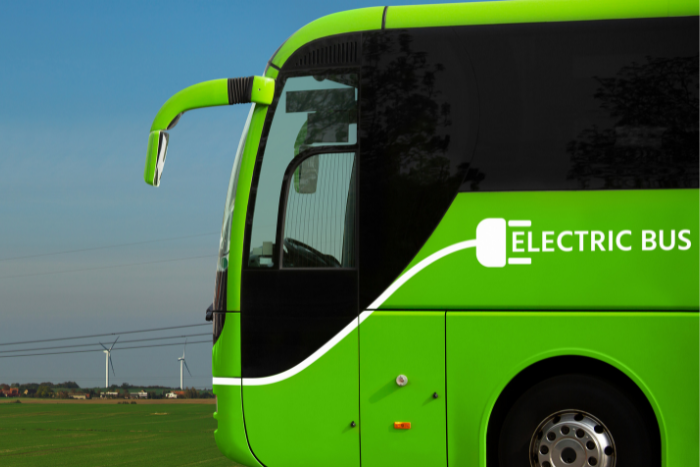The Indian government is reportedly planning a modification in the allocations under its FAME subsidy scheme. According to The Business Standard, the government is now considering diverting unutilised funds amounting to around Rs2000 crore, originally earmarked for electric three-wheelers, towards procurement of e-buses.
The report comes hot on the heels of the failure of a mammoth tender floated by Convergence Energy Services (CESL) to attract any bidders. No bids were submitted for the ₹5,000-crore tender floated by CESL earlier this year to replace old, environmentally harmful diesel buses at state-run public transport systems with electric buses. These established automakers include Tata Motors, Ashok Leyland, and PMI Electro Mobility, reported the Economic times. The stakeholders said that the lack of funding for bus makers has capped bidding, citing state-run transport companies’ inability to timely pay the bus makers who were leasing the buses to them. Electric buses are 3–4 times more expensive than diesel buses, and because there is no broad infrastructure for charging them, banks cannot readily confiscate and redeploy them in the event of under recoveries.
The business model indicated that these buses will remain on the balance sheets of the automakers, who will lease them to government organisations and earn money on a pre-defined basis. Experts said that the availability of money will continue to be difficult unless a payment security mechanism is put in place.
BIS releases standards and tests for EV charging infra
The Bureau of India Standards (BIS) released standards and tests for EV charging infrastructure and requirements for battery swapping systems, the Economic Times reported. It also specified the safety standards for a battery swap system. The BIS said in a statement that the standards are designed to provide uniformity and compatibility for EV charging infrastructure across the world. The standards ensure that EV charging systems are secure, dependable, and compatible with a range of cars and charging network providers, according to BIS.
The series of standards has 10 parts which define the charging modes, communication protocols, electrical safety, and performance test requirements for EV charging systems, the statement added.
Power finance corp loans ₹633 crore to Gensol Engineering Ltd
According to a statement released by Gensol Engineering Ltd (GEL), the company received a loan of ₹633 crore from the state-owned Power Finance Corporation (PFC) for the purchase of 5,000 passenger electric vehicles and 1,000 cargo EVs. The passenger EVs will be leased to Blusmart Mobility Pvt Ltd (BMPL) to expand its fleet of ride-hailing cabs. The first loan tranche has been disbursed, and the first batch of electric taxis have begun operating in Delhi, the statement continued. Over 1,00,000 tonnes of CO2 equivalent in emissions would be saved through these PFC sponsored 5,000 electric four-wheelers. This is comparable to the amount of CO2 absorbed annually by more than 5 million fully mature trees.
Indian cab startup BluSmart challenges Uber to an EV battle
With wagers on an all-electric taxi fleet and an aggressive effort to poach dissatisfied customers and drivers, BluSmart, an Indian ride-hailing start-up, hopes to compete with Uber and Ola for market share in the country. A complete transition to all-electric taxis for market leaders Uber and Ola is anticipated to be a challenging task that would occur while both businesses battle with driver retention and customer satisfaction difficulties.
As the Indian ride-hailing market is crucial for Uber, it is also slowly adding EVs, targeting 25,000 cars in the country. BluSmart, a new player, hopes to make the best of the opportunity by outperforming its competitors that use combustion engines in terms of electrification, cleanliness, and dependability by directly managing its fleet and drivers. To begin with, drivers are unable to cancel reservations made through the BluSmart app.
Australia released EV strategy improving EV supply and affordability
The Australian government has released a strategy outlining how it plans to scale up electric vehicle sales across the nation. A new fuel-efficiency standard, which will be created following consultation and mandate automakers to reach certain emissions limits for their whole fleet or else face penalties, is one essential element of the strategy. The government’s key areas include the availability of EVs, the systems and infrastructure required to enable their adoption, and the desire for them among drivers. The key six outcomes anticipated after the strategy implementation are an increase in the variety of EVs available, a decrease in transportation emissions, easier EV charging across the country, more local manufacturing and material recycling, cheaper EV ownership, and more.
About The Author
You may also like
Battery recycling: The missing link in India’s EV supply chain?
New report shows ways to build an efficient e-bus ecosystem in India
Corporate watchdog accuses Toyota of misleading marketing, greenwashing
Electrifying India’s Roads: Financing EVs – Challenges, Progress and the Road Ahead
Five lithium and cobalt mines identified in overseas exploration


